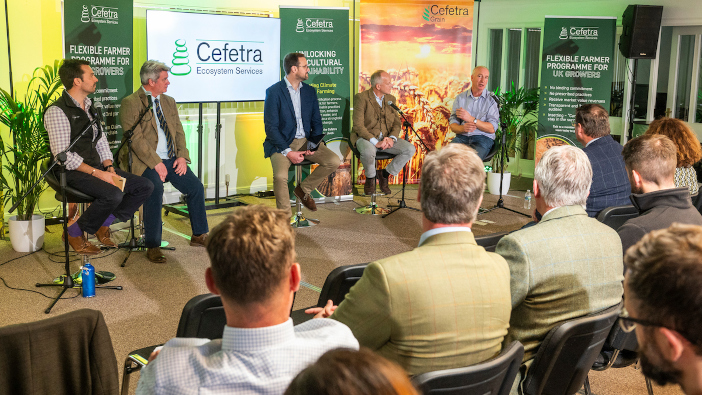Cefetra has announced a new partnership to help growers see a better financial return on sustainable practices, in a scheme backed by farm owners.
To tackle climate change, Cefetra Ecosystem Services will act as a bridge for customers expected to source sustainable suppliers and farmers wanting financial returns on their practises.
Through practical advice, the company says that it will ensure benefits are provided to all parts of the supply chain. Established methodologies will be applied alongside a carbon programme backed by Science Based Targets initiative guidance.
Agronomy company Soil Capital has partnered with Cefetra to offer a toolkit of products and services based on farm data, as well as provide advice on future actions.

Thomas Todd, who farms in Northumberland, is among those backing Cefetra Ecosystem Services and has implemented minimum tillage practices.
He said: “Everyone in farming knows we need to make a difference but we cannot do it alone so it is fantastic to see the Cefetra Ecosystem Services initiative launched by Cefetra to help us bridge the gap with the buyers and end consumers who want evidence that our produce meets sustainability standards and for us to secure financial rewards for doing so.”
He added that minimum tillage has formed part of a wider string of measures to reduce his environmental impact. “We use less nitrogen and I have not used slug pellets or insecticides in years and we do not seem to miss them. It suits our ground and our crops are looking healthier for it. We can create a good seedbed allowing our crops to establish well, resulting in yields that even in dry years remain very good.”
Mr Todd joined a panel of experts explaining the new partnership to an audience of farmers at Cefetra’s Ormiston Grain Storage Facility in Scotland on Wednesday, November 8.
Uwe Schroeder, head of Cefetra Ecosystem Services for Cefetra Group, said: “With Cefetra Ecosystem Services the main aim is to get as much money as possible and in a transparent way to the farmer. Cefetra gives a guarantee of 70 per cent of the carbon claims going to the farmer, with the rest going on administration, marketing and profit.
“The certificate is a way to make the process measurable and verifiable to prove that the grain is improved.”
Andrew Voysey, chief impact officer for Soil Capital, said: “Sitting behind each carbon certificate is one tonne either in the reduction of greenhouse gas (GHG) emissions or of increased carbon storage in the soil. The average rate of certificate generation we have seen so far on land producing all sorts of crops is up to two certificates per hectare.”
For more information go to www.cefetra.co.uk



